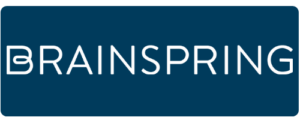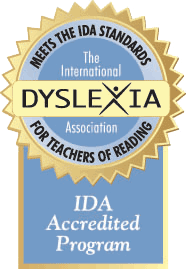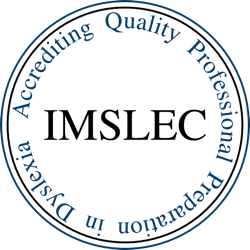8 Ways to Build Independent Learners
Posted by Brainspring on 9th Jul 2019
As teachers, we can sometimes get carried away by the desire to help our struggling readers. We may try to ease their struggle by helping them a little too much or by even just giving them the answer sometimes. It can happen to the best of us! However, one of our main goals as teachers should be to create independent learners who can function and apply their skills outside the classroom, without us.
This is especially important when learning to read because our students absolutely must be able to read and spell independently to be successful. During our Orton-Gillingham courses, we speak to this point often. We give teachers tools and techniques that they can teach to their students to give their students ways to help remind themselves of the right answer or to be able to correct their miscues on their own.
Here are the most common ways teachers can do too much during an Orton-Gillingham lesson, and some small tips for what you can do instead to build independent learners:
- Visual Drill
- Too Much: The teacher says sounds loudly, before students have had time to think and respond.
- Instead: Students should say the sound. In a classroom, you may need to build in some wait time to allow all students the chance to process.
- (Remember, if the students are miscuing often during the 3 part drill, it’s an indication that you may need to adjust some aspect of your teaching.)

- Auditory Drill
- Too Much: Teacher attempts to address a miscue by saying, “No. I said /a/ like “apple”, so make an a.”
- Instead: Give students time to fix their own miscue. Repeat the sound and have them say it back to you; then see if they are able to write the proper grapheme.

- Blending Drill
- Too Much: The teacher points and loudly sounds out the word for the students.
- Instead: The students should be doing the work of pointing and saying each sound. Sit back and listen for problematic sounds and/or automaticity.

- Word Dictation
- Too Much: The teacher pounds and taps the word loudly for the students.
- Instead: The students should pound and tap, while you listen.
- We often make the pounding motion as a reminder for the students to pound and tap before writing, but we listen to them say the word and tap the sounds.
- Sentence Dictation
- Too Much: The teacher feeds the sentence to the student one word at a time.
- Instead: Say the sentence twice, then have the student pound and repeat the sentence. If the student gets stuck, encourage them to pound it again. If necessary, repeat the whole sentence, then have the student pound the whole thing again.
- Syllabication
- Too Much: The teacher always says the steps for the students.
- Instead: The student should verbalize the process to you.
- Red Words
- Too Much: The teacher loads and arm taps the word, while the student barely moves their arms.
- Instead: Encourage the student to go through the whole motion of loading and arm tapping themselves. These movements can help trigger the correct spelling in the students memory.

- Oral Reading
- Too Much: The teacher tells a student the word when the student gets stuck or the teacher sounds it out for the student.
- Instead: Suggest the student sound out the word. If controlled readers are being used, the student should be familiar with every sound.
After plenty of modeling and practicing together, the goal is for the teacher to do as little as possible during these lessons. Give the students time to process, remind them to pound and tap, remind them to verbalize the syllabication steps to see if that triggers what they should do next, etc.
When you help guide students to apply the skills and knowledge you’ve taught them on their own, you are helping to build in them the invaluable skill of becoming independent learners.
What other ways do you encourage your students to build independence? We would love to hear from you!
Click here to see one of our instructors give some helpful hints about miscues!



